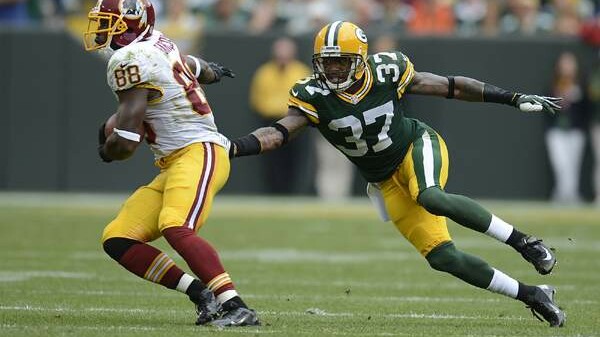Shedding the Skins
Wisconsin has ditched offensive nicknames. Now the NFL should follow suit.

When you are a child, you oftentimes lack a good grasp on what is offensive. You hear a term in an ostensibly neutral context, and you think nothing of the meaning. When I started following sports as a kid in the mid-1980s, I learned many team nicknames and thought of them as nothing more: plain-old nicknames. I quickly familiarized myself with names like the St. John’s Redmen and the Marquette Warriors and, especially, the Washington Redskins.
The Redskins – what a name, eh? A racially derogatory term about Native Americans, yet we – I – had no trouble referring to Washington, D.C.’s, NFL team as such for decades. Sure, they had a Native American-with-headdress for a logo, but how different was this from other teams with similarly-inspired names like the Braves, Chiefs, Indians, Fighting Illini, Seminoles … a really long list of such names? They could be a tad insensitive, but this was the norm. Or so we thought.
While I openly referred to that team as the Redskins for most of my life, I gradually started feeling a twinge of unease.
The wave of changes to Native American-related sports names and symbols that swept through Wisconsin’s school system over the past decade has washed ashore in different ways across the country since the ’80s. The Redmen became the Red Storm, and the Warriors are now the Golden Eagles. The Menomonie Indians changed to the Mustangs, but Osseo-Fairchild athletics went through the pangs of transition from Chieftains to Thunder, even if one could argue “Chieftain” is in the category of “more-acceptable” for Native American names. The wave is now gathering up the Potomac River to the nation’s capital – and some of the waves recently found their way to the shores of Green Bay.
Washington recently played the Packers, and a group of protesters stood outside Lambeau Field to protest the “Redskins” nickname. This was a smaller crowd than some expected – a cool, overcast drizzle probably cut back some enthusiasm. However, sentiment exists to dump the name. This is a sentiment that, in the past few months and, in particular, weeks, has grown noticeably more public across the sports landscape. Former Washington player and current Packers CEO Mark Murphy questioned the name’s appropriateness over the summer. Prominent sports scribes like my two favorite columnists – Peter King and Bill Simmons – have chosen to stop referring to the team as the “Redskins.”
Every step towards eradicating that name and educating the public why it should be done counts as progress, so I am stopping such references, as well.
While I openly referred to that team as the Redskins for most of my life, I gradually started feeling a twinge of unease. I started to become uncomfortable with Native American imagery in sports when the first prominent protesting came in 1991 involving the Atlanta Braves’ Tomahawk Chop and War Chant during their run to that year’s World Series. Then again, a good chunk of that disgust may have been me hating the Braves as the rivals to my Minnesota Twins in the Series.
Still, the one name that bothered me most was “Redskins,” and in recent years I found myself calling them “Washington” in conversations with others, trying to leave out the nickname without any reference as to why. Now that the movement to excise the name from the sports vocabulary has risen in prominence this year, it has become the time for those of us who find the name distasteful to inform others and raise awareness. Good old social activism in the sports world.
If you question my take on other Native American names, my answer is that I always defer to the opinion of those personally affected: in this case, Native Americans. Not all consider every sports name to be a slight – the Kansas City Chiefs seem to have raised few such rankles – so perhaps some names can stay. Other situations are more difficult: the North Dakota Fighting Sioux had some tribes offended, and some not. Overall, those not personally affected – white folks like me – can never be in a position to tell that affected group how they should feel about our choices.
Changing these names and mascots was a difficult and uneven transition here in Wisconsin, and will be for the NFL. Yet, Washington’s name must go. Respect is more important than a “tradition” of sports and our entertainment – a tradition with roots in a dark past.




















